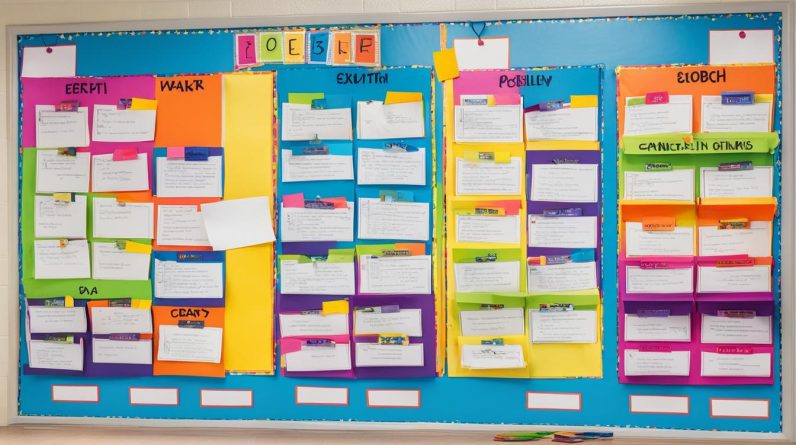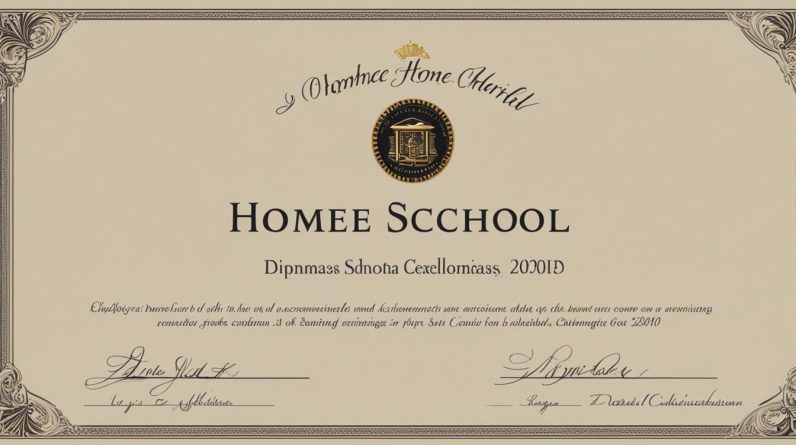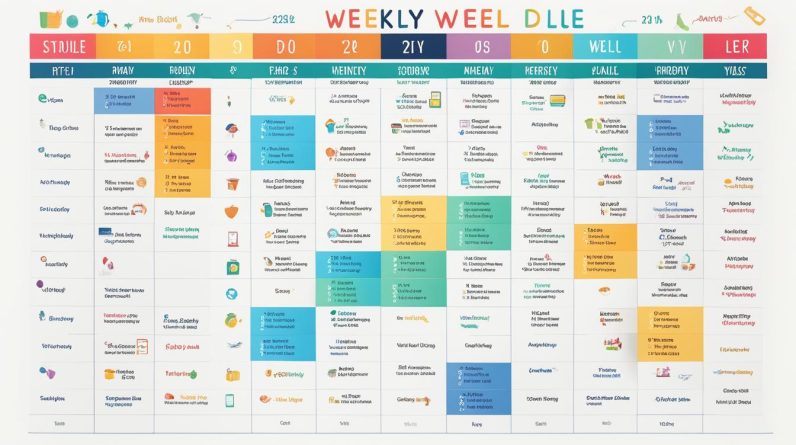Homeschooling kindergarten is an exciting and rewarding journey for both you and your child. As you embark on this new educational adventure, it’s important to have the right tools and information to provide a successful learning experience at home.
In this guide, we will explore everything you need to know about homeschooling your kindergartener. From creating a schedule to choosing a curriculum, we’ll cover all the essential aspects that will help you lay a strong foundation for your child’s education.
Key Takeaways:
- Kindergarten homeschooling can be a rewarding experience for both parents and children.
- Creating a schedule and following a curriculum is crucial for a successful homeschooling journey.
- Subjects typically taught in kindergarten include math, language arts, science, art, and physical education.
- Kindergarten learning objectives focus on foundational skills like reading, writing, and basic math.
- A recommended reading list for kindergarten can help foster a love for books and improve literacy skills.
How to Homeschool Kindergarten
When starting to homeschool kindergarten, it’s important to have a clear plan and follow a few steps. Here are some valuable tips and recommendations to help you navigate this exciting journey:
- Choose a Trusted Homeschooling Program: Consider using a reliable homeschooling curriculum like Time4Learning, which offers ready-to-follow lesson plans and a comprehensive kindergarten curriculum. This eliminates the need for extensive lesson planning and ensures that you cover all the necessary subjects.
- Start with a Manageable Schedule: Begin with 2 hours of homeschooling per day and gradually increase the duration as your child becomes more comfortable with the routine. Remember, kindergarten learners have shorter attention spans, so shorter, focused bursts of learning are often more effective.
- Experiment with Schedules: Homeschooling allows for flexibility, so feel free to experiment with different schedules to find what works best for you and your child. Some families prefer morning sessions, while others find that afternoon sessions are more productive. Find a rhythm that suits your family’s lifestyle.
- Break Subjects into Manageable Portions: Instead of cramming all subjects into a single day, spread them out throughout the week. This approach helps prevent overwhelming your child and allows for deeper exploration of each subject. You can dedicate specific days to math, language arts, science, and other subjects as per the kindergarten curriculum guidelines.
- Be Flexible and Open-Minded: Homeschooling allows you to adapt your approach based on your child’s individual needs and interests. Remain open to modifying the curriculum, incorporating hands-on activities, or exploring additional resources that align with your child’s learning style. Flexibility is key to personalizing the learning experience.
- Take Frequent Breaks: Kindergarteners have abundant energy, so be sure to incorporate breaks into the daily schedule. Plan engaging activities such as outdoor play, art projects, or music sessions to keep your child active and refreshed throughout the day.
Remember, each child is unique, and what works for one may not work for another. Pay close attention to your child’s progress and adjust your homeschooling approach accordingly. The ultimate goal is to create a positive and enriching educational environment that nurtures your child’s love for learning.
What Subjects Are Taught in Kindergarten?
Homeschooling kindergarten covers a variety of subjects to provide children with a well-rounded education. In addition to core subjects like math and language arts, homeschoolers have the flexibility to incorporate other subjects based on their child’s interests and state requirements.
Here are the main subjects typically taught in kindergarten:
- Math: Kindergarteners learn foundational math skills such as counting, number recognition, basic addition and subtraction, and shape recognition.
- Language Arts: This subject encompasses reading, writing, and phonics. Children develop their reading skills, learn to write letters and simple words, and practice phonics to build their literacy skills.
- Science: Kindergarteners explore the world around them through hands-on experiments and observations. They learn about plants, animals, weather, and the basic principles of scientific inquiry.
- Art: Art activities encourage creativity and self-expression. Kindergarteners engage in drawing, painting, coloring, and crafting to develop their fine motor skills and artistic abilities.
- Physical Education: Physical education promotes physical fitness, coordination, and gross motor skills. Activities like running, jumping, throwing, and dancing help children develop their motor skills and stay active.
In addition to these core subjects, homeschooling offers the opportunity to explore other subjects, such as:
- Social Studies: Kindergarteners can learn about community helpers, holidays, and basic concepts of geography and history.
- Music: Introducing children to music helps develop their appreciation for different sounds, rhythms, and melodies.
- Foreign Languages: Some homeschooling families introduce foreign languages to their kindergarteners to expose them to different cultures and facilitate early language acquisition.
Homeschooling allows flexibility in curriculum customization, so you can tailor your child’s education to their interests and strengths while ensuring they meet the necessary learning objectives.
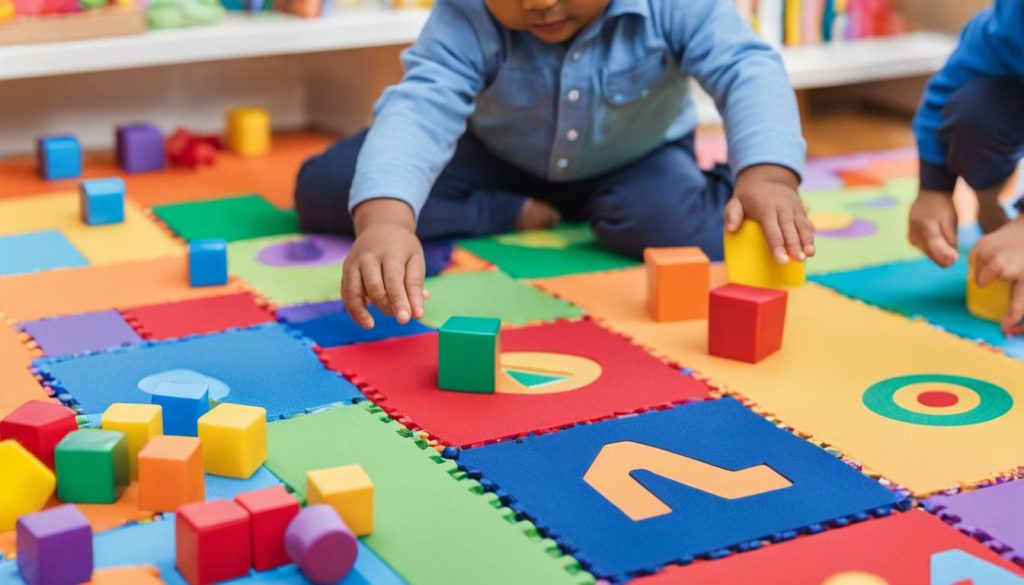
Kindergarten Learning Objectives
In kindergarten, your child will be introduced to foundational skills and concepts that lay the groundwork for future academic success. It’s important to ensure that your homeschooling curriculum covers these essential learning objectives.
Here are some key kindergarten learning objectives to focus on:
- Understanding the parts of a book: Teach your child about the cover, title page, author, illustrator, and different parts of a book. Encourage them to explore books independently and follow along as you read aloud.
- Identifying uppercase and lowercase letters: Introduce the alphabet and help your child recognize and name both uppercase and lowercase letters. Practice letter formation and help them develop strong letter recognition skills.
- Demonstrating comprehension skills: Encourage your child to listen and comprehend what they read or hear. Ask questions about the story and help them make connections to their own experiences.
- Recognizing high-frequency words: Introduce sight words, commonly used words that children should be able to recognize by sight. Practice reading and spelling these words to improve your child’s reading fluency.
- Developing basic math skills: Teach your child basic math concepts like addition and subtraction. Use hands-on activities, manipulatives, and visual aids to help them understand and practice these fundamental skills.
By focusing on these kindergarten learning objectives, you can lay a strong foundation for your child’s academic journey. Remember to make learning fun and engaging by incorporating hands-on activities, interactive games, and real-life examples.
Reading Book List for Kindergarten
Reading is a fundamental skill that lays the foundation for your kindergartener’s education. By introducing them to captivating stories and engaging characters, you can foster a love for reading that will last a lifetime. Here is a recommended reading list for kindergarten that includes popular titles:
- “Goodnight Moon” by Margaret Wise Brown
- “Corduroy” by Don Freeman
- “Harry the Dirty Dog” by Gene Zion
These beloved books captivate young readers with their enchanting tales and beautifully crafted illustrations. They are perfect for sparking your child’s imagination and building their vocabulary.
Enhancing Literacy Skills with Time4Learning
In addition to the suggested reading list, incorporating a comprehensive homeschool curriculum like Time4Learning can greatly enhance your kindergartener’s literacy skills. Time4Learning’s kindergarten language arts curriculum includes a variety of reading activities designed to engage young learners. Through short stories, fables, and nursery rhymes, your child will develop key language and comprehension skills, all while having fun!
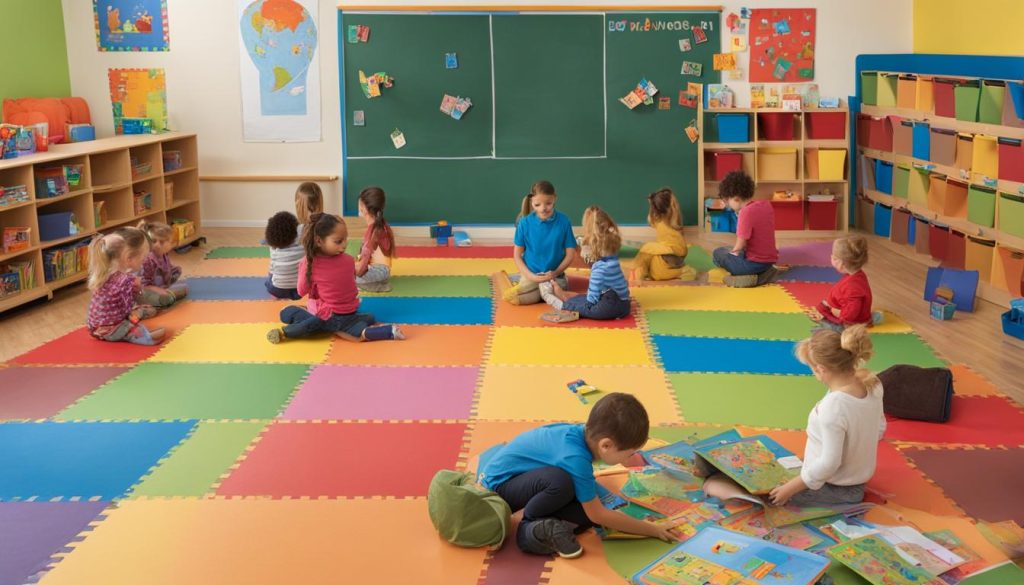
Recommended Reading Book List for Kindergarten
| Title | Author |
|---|---|
| Goodnight Moon | Margaret Wise Brown |
| Corduroy | Don Freeman |
| Harry the Dirty Dog | Gene Zion |
Introducing these timeless classics to your kindergarten homeschool curriculum will not only foster a love for reading but also strengthen essential literacy skills. Enjoy the journey of reading together with your kindergartener and watch as their imagination takes flight!
Kindergarten Homeschooling Tips & Ideas
Homeschooling kindergarten should be a fun and enjoyable experience for both parents and children. To make it a memorable year, here are some tips and ideas to consider:
Schedule Plenty of Playtime
Key tip: Incorporate playtime into your daily homeschooling routine. Play promotes creativity, problem-solving skills, and overall development. It also keeps children engaged and excited about learning.
Read Together
Key tip: Reading is fundamental for building language skills and sparking imagination. Set aside dedicated reading time and explore a variety of age-appropriate books with your kindergartener. This not only enhances their literacy but also creates special bonding moments.
Go on Field Trips
Key tip: Take learning beyond the confines of your home by planning educational field trips. Visit museums, zoos, botanical gardens, or historical sites to give your child hands-on experiences and make learning more tangible.
Embrace a Child’s Curiosity
Key tip: Encourage your kindergartener to ask questions and explore their interests. Follow their lead and design activities or projects that align with their curiosity. This approach fosters a love for learning and helps them develop critical thinking skills.
Keep an Open Mind
Key tip: Flexibility is crucial in homeschooling. Be open to new ideas and approaches. Adapt your teaching style to suit your child’s needs and learning preferences. Remember, every child is unique, and tailoring the education experience is one of the advantages of homeschooling.
Take Frequent Breaks
Key tip: Allow for regular breaks throughout the day to give your child time to recharge. Incorporate movement breaks, outdoor play, or short relaxation activities to maintain focus and avoid burnout.
Utilize Technology for Educational Purposes
Key tip: Technology can be a valuable tool for enhancing learning. Explore educational websites, apps, and online resources that align with your curriculum. Use interactive tools to reinforce concepts or facilitate virtual field trips for enriching experiences.

Sample Homeschooling Schedule for Kindergarten
| Time | Activity |
|---|---|
| 9:00 AM – 9:30 AM | Circle Time (Calendar, Weather, Songs) |
| 9:30 AM – 10:15 AM | Mathematics |
| 10:15 AM – 10:45 AM | Reading/Phonics |
| 10:45 AM – 11:00 AM | Snack Time |
| 11:00 AM – 11:30 AM | Writing/Handwriting |
| 11:30 AM – 12:00 PM | Science |
| 12:00 PM – 12:45 PM | Lunch/Outdoor Play |
| 12:45 PM – 1:15 PM | Social Studies/Art |
| 1:15 PM – 1:45 PM | Physical Education |
Remember, homeschooling allows flexibility, so feel free to adjust and personalize the schedule to best suit your child’s needs and your family’s routine.
Choosing a Homeschooling Curriculum for Kindergarten
When it comes to homeschooling kindergarten, selecting the right curriculum is a crucial decision. With so many options available, it’s important to consider your child’s learning style, the curriculum’s approach, and how well it aligns with your educational philosophies and values.
First and foremost, take into account your child’s learning style. Some children thrive in a play-based environment, while others may do better with a more structured approach. Consider how your child learns best and choose a curriculum that caters to their unique needs.
Next, think about the curriculum’s approach. Do you prefer a literature-based curriculum that emphasizes reading and storytelling? Or maybe an online program that offers interactive activities and multimedia resources? Take the time to research different approaches and choose the one that resonates with you and your child.
It’s also important to consider any specific educational philosophies or religious beliefs you may have. Some curricula are designed with a particular educational philosophy in mind, such as Montessori or Waldorf. Others may have religious components that align with your faith. Make sure the curriculum you choose aligns with your beliefs and values.
Research and Recommendations
Before making a decision, it’s essential to do thorough research. Read reviews from other homeschooling parents to get insights into their experiences with different curricula. Look for reputable sources and join online homeschooling communities to seek recommendations and ask for advice.
Many curriculum providers offer free samples or trials of their materials. Take advantage of these opportunities to get a sense of the curriculum’s content, teaching style, and whether it suits your child’s needs. This firsthand experience can help you make an informed decision.
Top Homeschooling Curricula for Kindergarten
| Curriculum | Approach | Learning Style | Price |
|---|---|---|---|
| A Beka Book | Traditional | Structured | $200-$500 |
| Singapore Math | Math-focused | Visual and Logical | $20-$60 |
| Oak Meadow | Waldorf-Inspired | Creative and Hands-on | $200-$400 |
| Time4Learning | Online | Interactive and Multimedia | $19.95/month |
Remember, when choosing a homeschooling curriculum, it’s important to consider your child’s learning style, the curriculum’s approach, and alignment with your educational philosophies and values. Conduct thorough research, read reviews, and utilize free samples to make a well-informed decision. You’re one step closer to providing a quality homeschooling experience for your kindergartener.
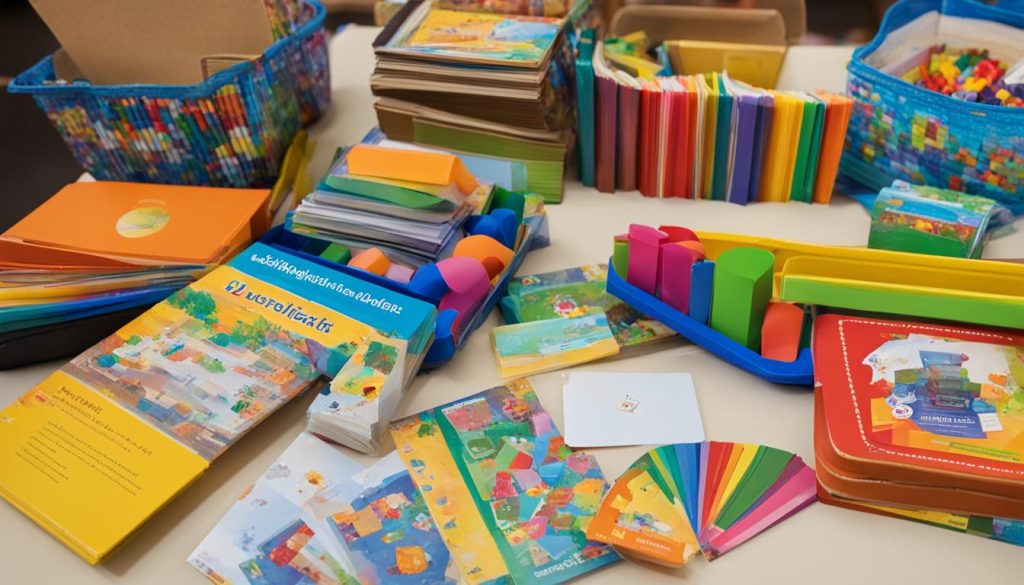
Do I Need an Accredited Kindergarten Curriculum?
Accreditation plays an important role in validating the quality and standards of educational institutions. However, when it comes to homeschooling, accreditation for individual curricula, including kindergarten, is not a requirement. Accreditation is designed for schools and institutions rather than specific curricula. Homeschool curriculum, including kindergarten curriculum, does not need to be accredited to be considered legitimate.
It’s worth noting that some families choose to utilize accredited online or charter schools for compliance with attendance laws. However, this accreditation is specific to the institution providing the curriculum, not the curriculum itself.
Accreditation is not a determining factor in the validity or effectiveness of a homeschooling kindergarten curriculum. Homeschooling allows the flexibility to tailor education to your child’s unique needs, learning style, and interests. Many families have successfully homeschooled their kindergarteners without relying on accredited curricula.
While accreditation is not necessary, it is essential to research and select a well-rounded homeschool kindergarten curriculum that aligns with your educational philosophy and meets your child’s learning objectives.
Building Your Own Kindergarten Homeschool Curriculum
If you’re a homeschooling parent, you have the flexibility to create a customized kindergarten homeschool curriculum for your child. By choosing an all-in-one curriculum or mixing and matching resources, you can tailor the educational experience to your child’s interests and needs.
To ensure a well-rounded curriculum, consider selecting subject areas such as math, handwriting, phonics/reading, and literature. There are several reputable options available for each subject:
Math Programs:
- Math-U-See
- Singapore Math
- RightStart Mathematics
Handwriting Resources:
- Handwriting Without Tears
- Zaner-Bloser Handwriting
- D’Nealian Handwriting
Phonics/Reading:
- Explode the Code
- Hooked on Phonics
- Phonics Pathways
Literature-Based Curricula:
- Sonlight Curriculum
- AmblesideOnline
- BookShark
By carefully selecting curriculum components, you can create an engaging and effective kindergarten homeschooling experience that caters to your child’s unique learning style and interests.
FAQ
What steps should I follow when homeschooling kindergarten?
When starting to homeschool kindergarten, it’s recommended to use a trusted homeschooling program, start with 2 hours of homeschooling per day, experiment with different schedules, and be flexible and open-minded.
What subjects are typically taught in kindergarten homeschooling?
Kindergarten homeschooling typically covers subjects such as math, language arts (reading, writing), science, art, and physical education. Additional subjects like social studies, music, and foreign languages can also be incorporated based on the child’s interests and state requirements.
What are the learning objectives for kindergarten homeschooling?
Kindergarten learning objectives include understanding the parts of a book, identifying letters, demonstrating comprehension skills, recognizing high-frequency words, and developing basic math skills like addition and subtraction.
Can you provide a recommended reading book list for kindergarten?
Some popular books for kindergarten include “Goodnight Moon,” “Corduroy,” and “Harry the Dirty Dog.” The Time4Learning kindergarten language arts curriculum also incorporates reading activities through short stories, fables, and nursery rhymes.
What tips and ideas can you provide for making kindergarten homeschooling an enjoyable experience?
Tips for making kindergarten homeschooling fun include scheduling plenty of playtime, reading together, going on field trips, embracing a child’s curiosity, being flexible, taking breaks, and utilizing technology for educational purposes.
How can I choose the right homeschooling curriculum for kindergarten?
When choosing a homeschooling curriculum, consider the child’s learning style, the curriculum’s approach, and whether it aligns with any specific educational philosophies or religious beliefs. Researching, reading reviews, and utilizing free samples can also help in making the choice.
Do I need an accredited kindergarten curriculum for homeschooling?
No, accreditation is not necessary for homeschool curriculum, including kindergarten curriculum. Accreditation is for schools and institutions, not individual curricula. Some families may choose to use accredited online or charter schools for compliance with attendance laws, but it is not mandatory.
Can I build my own kindergarten homeschool curriculum?
Yes, you can build a customized kindergarten homeschool curriculum by selecting an all-in-one curriculum or mixing and matching resources based on your child’s interests and needs. Consider subject areas like math, handwriting, phonics/reading, and literature to create a well-rounded curriculum.

